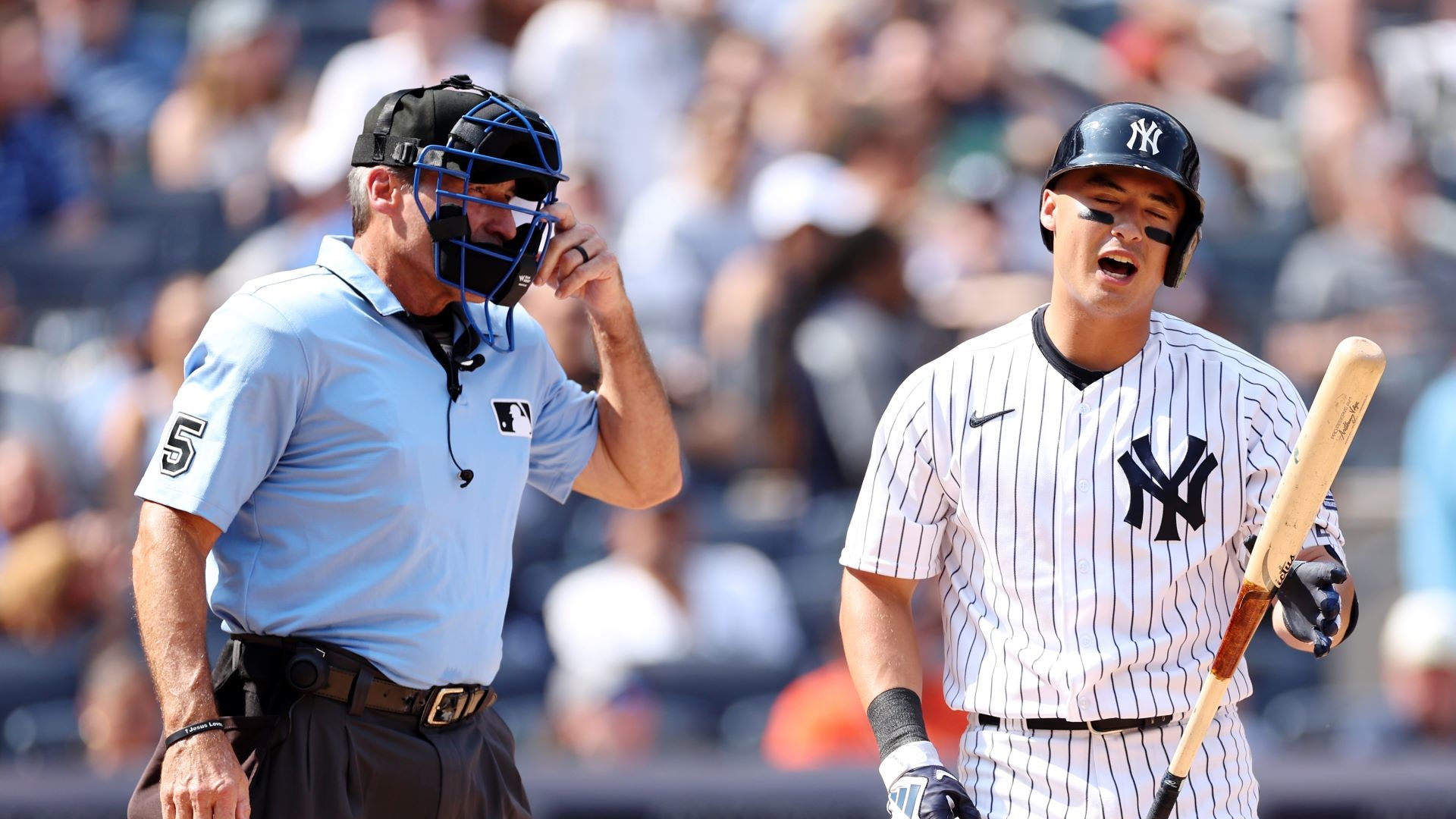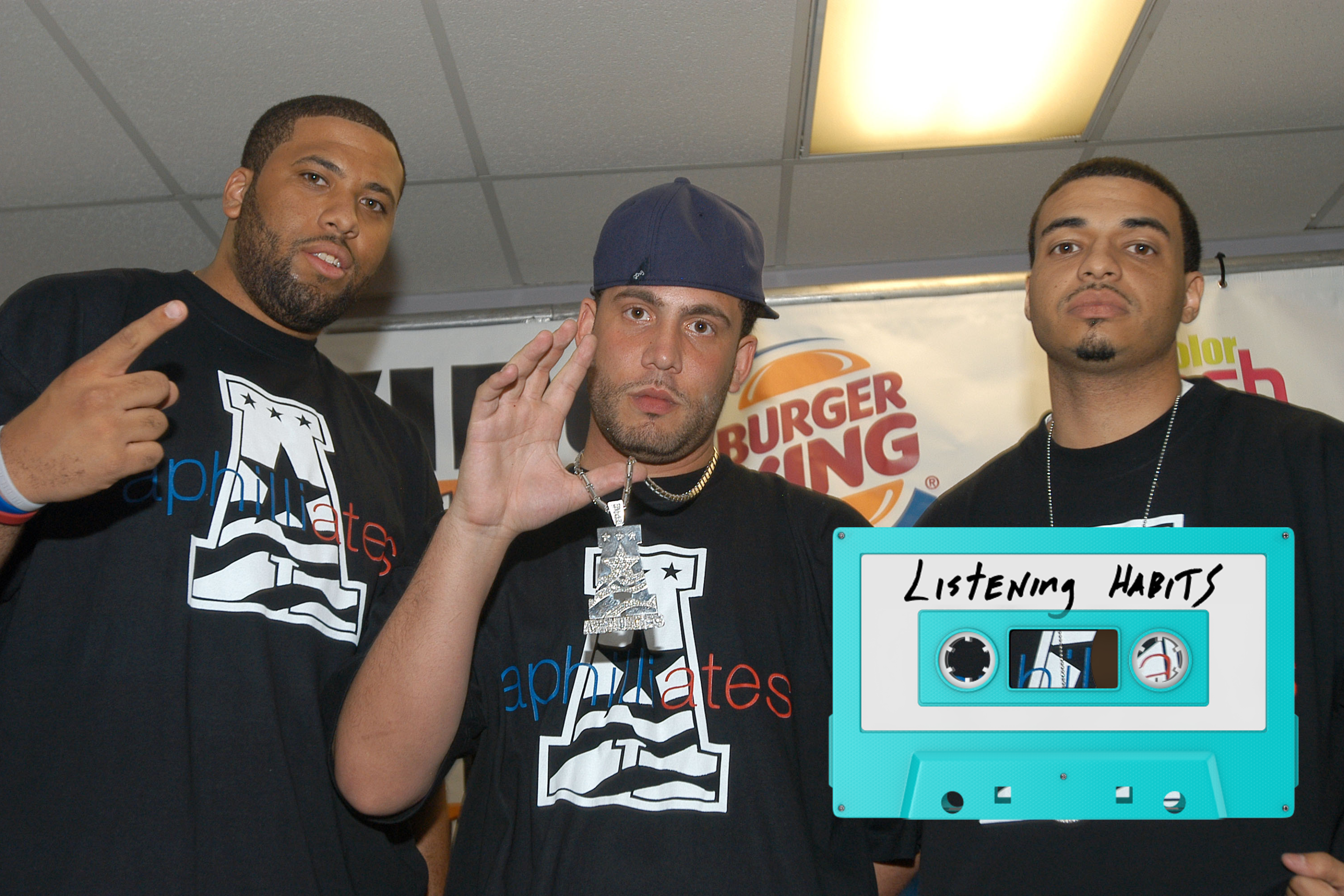In the first inning of Tuesday's Padres-Brewers game, umpire Ángel Hernández called a balk on Wade Miley. Even though nobody knows what a balk actually is in normal circumstances, much less when a lefty is on the mound, this was notable because it was Hernández who made the call, so everyone at the game got mad. It may have actually been a balk—Miley twitches toward home before he throws the ball over to first—but the worst thing an umpire can do is have name recognition. To the detriment of all parties involved, Ángel Hernández has done his best to attain a high Q score.
Here's another recent, notable incident involving this guy (there are plenty to pick from): This past Friday, in the fourth inning of a Rangers-Astros game with one out and the bases loaded, Hernández called three straight strikes on Wyatt Langford that, as you would anticipate from a true master of his craft, were all incorrect calls that got progressively worse with each "strike." Langford struck out when he should have walked, but he didn't even blow up at Hernández. The Rangers outfielder simply looked befuddled as he walked back to the dugout.
In 2017, Hernández filed a discrimination lawsuit against MLB because he wasn't selected for World Series games, and in response, MLB stated that he was simply bad at his job, which about sums up his career. The lawsuit also drew more attention to Hernández, who not unlike UCL tears continues to plague MLB. Even the normally congenial Ken Rosenthal is out here trying to figure out what to do with this guy. Rosenthal reached out to an anonymous umpire who spoke in support of Hernández, saying "that Hernández’s mistakes are not much worse than those of other umpires, but more magnified because of his reputation."
Fortunately for Hernández and unfortunately for baseball, the anonymous umpire has something of a point. Pull up Ump Scorecards and sort all umpires by accuracy, and Hernández's 92.8 percent mark makes him only the 13th-worst so far this season, if you restrict the sample size to umps who've called at least three games. At the bottom is either John Bacon, who has only called one game to a flat 90 percent accuracy, or, with sample-size limitations, Mike Estabrook with 91.2 percent accuracy over three games. There are some other recognizable names who rank below Hernández, like C.B. Bucknor and Hunter Wendelstedt.
It's helpful to look at a larger sample size prior to this year. In the 2023 season, Hernández was the second-least accurate umpire in MLB above only Scott Barry, memorable for once mocking Ryan Howard then issuing his first career ejection; in 2022, Hernández didn't even rank in the bottom 30. At the top of the 2024 leaderboard is Alex Tosi, who has a 96.9 percent accuracy score; just below him is Mark Ripperger, who has a 96.6 percent score, both with at least three games called. Perhaps the only umpire that people know for being good in recent memory is Pat Hoberg, who has a 95.4 percent accuracy across 91 games called since 2021, including a perfectly called World Series game in 2022. Although he was on the official 2024 umpire crew list, Hoberg has yet to call a game so far this season (or, at least, he doesn't appear on the Ump Scorecards leaderboard).
When evaluating the human component of umpires, people have traditionally focused not on accuracy but consistency. If an umpire is constantly calling strikes on the same side of the plate, then the pitcher can notice and take advantage, and the batter is usually expected to adjust. Ump Scorecards also has consistency metrics, which factor in the zone established by the umpire. By that concern, Hernández ranks even better than he does on accuracy. But at a certain point, if your scorecard looks like this at the end of a night, consistency becomes irrelevant:
Umpire: Angel Hernandez
— Umpire Scorecards (@UmpScorecards) April 13, 2024
Final: Rangers 12, Astros 8#StraightUpTX // #Relentless#TEXvsHOU // #HOUvsTEX
More stats for this game 👇https://t.co/RJKSQogI6y pic.twitter.com/uRM1ykGr3R
What is the acceptable error for the human component? Incorrect calls in the spirit of wanting to leave work a little earlier? To get nearly 10 percent of called pitches wrong is clearly unacceptable; the bigger question is whether 5 percent, on the more accurate end of the spectrum, is acceptable. The Ump Scorecards analysis accounts for some error, but it is as precise as Statcast's data are, which is to a degree that no human can be. The rise of pitch-tracking data and the K-zone on television—which is often inaccurate—has rendered umpire failings more visible to the public. And yes, of course, the rise of sports betting is a factor in the increased scrutiny.
So, what are the possible solutions to the Issue of Ángel Hernández? The first is an automated strike zone and no challenges, which is the cleanest solution but would still have a margin of error. Some element of the human component will even remain, as pitchers and hitters routinely get mad at close calls that are correct, and would continue to do so with an automated zone. The second is allowing for challenging ball and strike calls, which is also an easy implementation but invites the issue that all challenges have already raised, including in baseball with out calls at home: A game-winning play is always worth a Hail Mary challenge, and so nobody will be able to celebrate a game-winning play. The third is the current situation: The issue persists, fans either accept the possibility of error and/or remain mad. Ángel Hernández eventually retires, or, knowing our luck and the general trajectory of things, unlocks the secret to immortality.
As Wade Miley has so helpfully demonstrated, the job of an umpire extends beyond calling balls and strikes, or even outs on the basepaths. You've got to have some people skills too. "Fixing" the strike issue won't fix the other stuff. There are judgment calls that will never receive definitive answers—for example, what constitutes a checked swing is ambiguous even in the rulebook. When it comes to these judgment calls, fans tend to be more equal-opportunity haters; it's harder to name a guy who constantly calls balks wrong, as opposed to pitches.
This is not a defense of Hernández, nor is it a plan for how to get rid of him. This is just an attempt to put the opprobrium into context and search for a lesson: Many umpires, not just Hernández, are a little worse than you'd imagine—fans just have the good fortune of knowing this particular umpire's name. C.B. Bucknor: You're up next.






